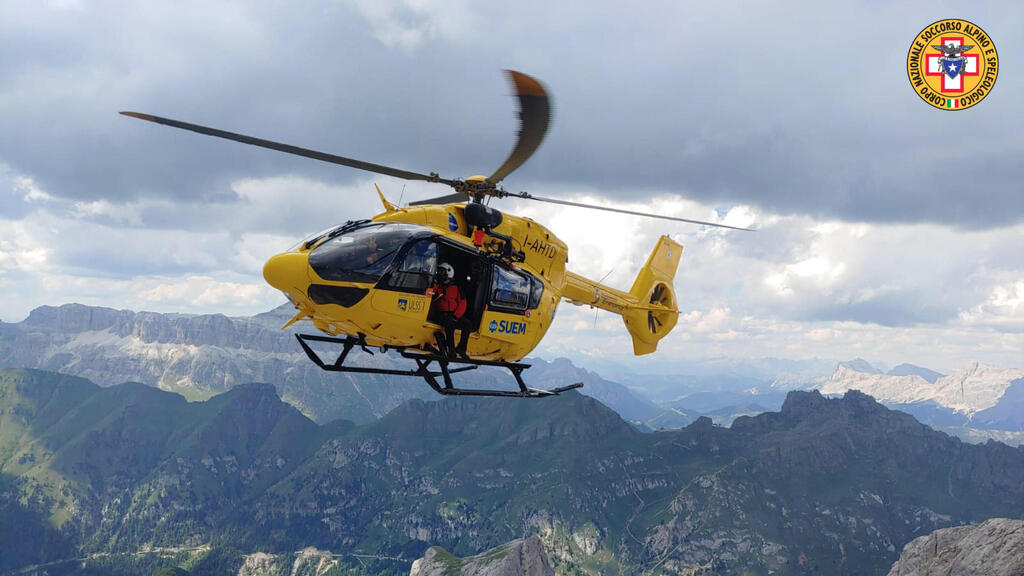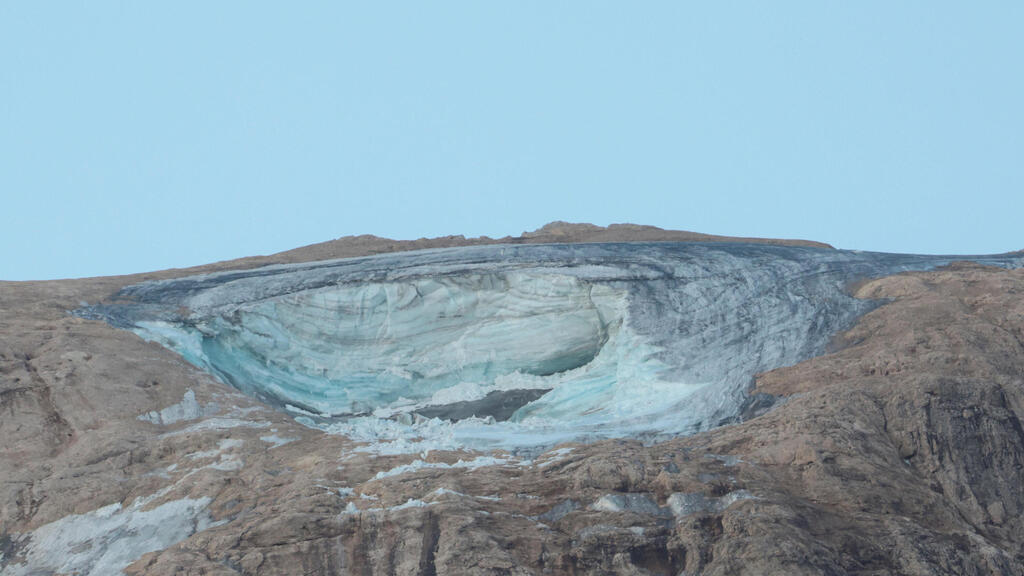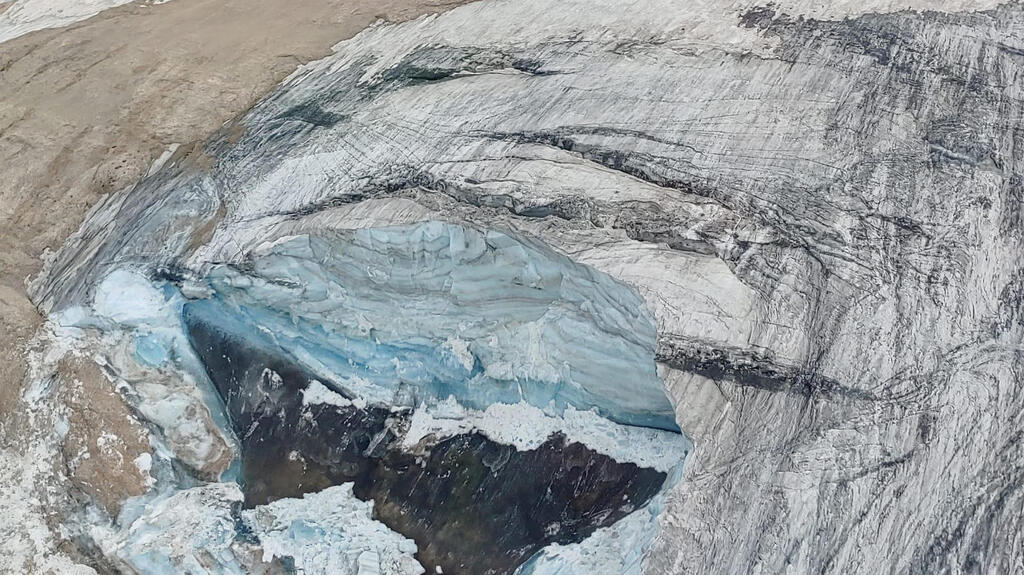A large chunk of an Alpine glacier broke loose Sunday afternoon and roared down a mountainside in Italy, sending ice, snow and rock slamming into hikers on a popular trail on the peak, killing at least six and injuring eight, authorities said.
"There could be about 10 people missing," Civil Protection official Gianpaolo Bottacin was quoted as saying by the online version of Italian daily Corriere della Sera. But Bottacin later told state television that it wasn't yet possible to provide a firm number some officials estimated there could be at least 15.
"We had a miracle," Stephano del Moro, who was on a hiking trip with his Israeli girl friend said. "We were at a slightly higher elevation than most of those hurt were. We herd a dull sound and then a sea of ice came down on us. There is no point in trying to escape. You can only pray the ice will not reach you," he said.
We remained holding on to each other and crouched on the ground until the ice passed us by," he said.
The glacier, in the Marmolada range, is the largest in the Dolomite mountains in northeastern Italy and people ski there in the winter. But the glacier has been rapidly melting away in recent years.
Experts at Italy's state-run CNR research center, which has a polar sciences institute, says the glacier won't exist anymore in the next 25-30 years and most of its volume is already gone. The Mediterranean basin, shared by southern Europe, the Middle East and northern Africa, has been identified by U.N. experts as a "climate change hot spot" likely to suffer heat waves and water shortages, among other consequences.
By Sunday evening, officials were still working to determine just how many hikers were in the area when the ice avalanche struck, said Walter Milan, a spokesperson for the national Alpine rescue corps who provided the death and injury toll.
Rescuers were checking license plates in the parking lot as part of checks to determine how many people might be unaccounted for, a process that could take hours, Milan said.
"We saw dead (people) and enormous chunks of ice, rock,'' exhausted-looking rescuer Luigi Felicetti told Italian state TV.
Nationalities or ages of the dead weren't immediately available, Milan said. Of the eight hospitalized survivors, two were in grave condition, authorities said.
The fast-moving avalanche "came down with a roar the could be heard at great distance,'' local online media site ildolomiti.it said.
Earlier, the National Alpine and Cave Rescue Corps tweeted that the search of the involved area of the Marmolada peak involved at least five helicopters and rescue dogs.
Temporarily, the search for any more victims or missing was halted while rescuers evaluate the risk that more of the glacier could break off, Walter Cainelli, after conducting a rescue mission with a search dog, told state television.
Rescuers said blocks of ice were continuing to tumble down. In early evening, a light rain began to fall.
The SUEM dispatch service, which is based in the nearby Veneto region, said 18 people who were above the area where the ice struck would be evacuated by the Alpine rescue corps.
But Milan said some on the slope might be able to get down by themselves, including by using the peak's cable car.
SUEM said the avalanche consisted of a "pouring down of snow, ice and rock" The detached section is know as a serac, or pinnacle of ice.
Marmolada, towering about 3,300 meters (about 11,000 feet), is the highest peak in the eastern Dolomites, offering spectacular views of other Alpine peaks.
The Alpine rescue service said in a tweet that the segment broke off near Punta Rocca (Rock Point), "along the itinerary normally used to reach the peak."
It wasn't immediately clear what caused the section of ice to break away and rush down the peak's slope. But the intense heat wave gripping Italy since late June could be a factor.
"The temperatures of these days clearly had influence" on the glacier's partial collapse, Maurizio Fugatti, the president of Trento Province, which borders Marmolada, said.
But Milan stressed that high heat, which soared unusually above 10 C (50 F) on Marmolada's peak in recent days, was only one possible factor in Sunday's tragedy.
"There are so many factors that could be involved,'' Milan said. Avalanches in general aren't predictable, he said, and heat's influence on a glacier "is even more impossible to predict."
In separate comments to Italian state television, Milan called the recent temperatures "extreme heat" for the peak." Clearly it's something abnormal."
The injured were flown to several hospitals in the regions of Trentino-Alto Adige and Veneto, according to rescue services.




